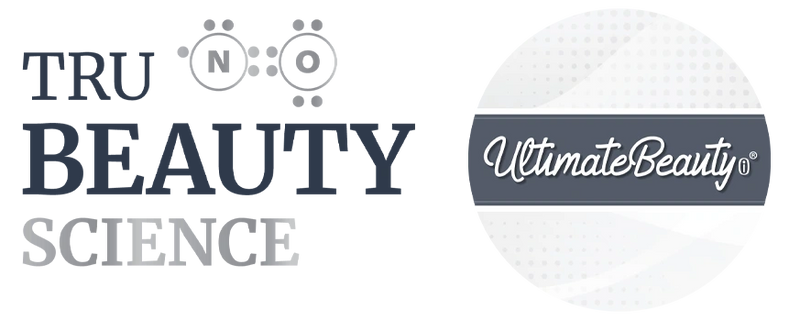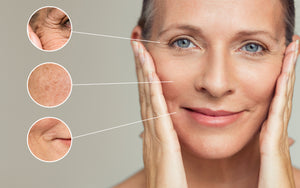There's no denying that collagen supplements are hot right now. They’re touted as good for your hair, nails, joints, and skin – and with good reason. Collagen is the most abundant protein in the body, and supplementation can help boost levels that may be waning due to aging or other factors. With so many choices, which supplement is best, and who could benefit? Let's learn more about collagen's role in your health and factors to consider.
What Exactly is Collagen and What Does it Do?
Collagen is a protein that makes up the structural matrix of connective tissues throughout the body, including skin, cartilage, bones, tendons, and even organs. Collagen helps tissues resist stretching or pulling (tensile) forces, which is important for many of the body’s functions, from firm and youthful skin to wound healing.
Your body can make its own collagen, but it requires special building blocks called amino acids. Some amino acids can be made by the body, but others, essential amino acids, must come from diet.
Conditional amino acids are used to build collagen, which can be synthesized by the body under normal conditions but may need to come from the diet or supplementation when your body is under stress or ill.
Boosting Your Body’s Collagen from the Inside Out
Generally speaking, there are three basic ways to give your body’s collagen a boost:
- Ingestible dietary collagen in pill form or powder
- Dietary intake from protein-rich foods and red vegetables
- Supplementation to give your body the tools it needs to create more collagen on its own
Let’s talk a little about the level of effectiveness for collagen supplementation.
Collagen from Diet or Supplements
Collagen can be found in the connective tissues of animals, like the bones, hooves, hides, and nerve tissue. However, dietary collagen can't be absorbed by the body in its whole form. To get around this, supplements tend to be hydrolyzed, a process that breaks down the collagen into more digestible pieces. There are a few issues with this.
The Collagen Supplements You Take May Not Be Used For Collagen Production
First, your body is going to break down collagen like any other protein into its building blocks (remember those amino acids?). The human body is very efficient and prioritizes its needs. Once those building blocks are available, they may not necessarily go back toward replenishing collagen. In fact, they likely won’t. Your body is going to use them for what it needs most right that minute. Likewise, if your body does feel the need to build up collagen, it’s going to take the proper amino acids from any protein source, including plant sources.
Collagen Supplements May Contain Toxins
Second, you have to consider the safety of collagen used within supplements. The sources of collagen – animal bones, hides, and other tissues – are capable of absorbing toxins. The process of extracting collagen from bones can also extract these toxins, which then wind up in the product. In fact, one study found high levels of toxic heavy metals in a collagen supplement available on the market.
Not All Collagen Supplements Are The Same
Finally, it's important to understand the qualities of different types of collagen. For example, marine collagen breaks down at low temperatures, limiting its effectiveness.
Non-Collagen Supplements to Support Collagen Production
You can also support your body's production of collagen through non-collagen supplements. Besides amino acids, several other nutrients are important for the production of collagen in the body.
Vitamin C
For example, vitamin C is a necessary cofactor in collagen synthesis. Without it, the process simply can’t happen. Vitamin C functions as an antioxidant to combat oxidative stresses that would degrade existing collagen. Good food sources of vitamin C include citrus fruit, peppers, strawberries, and tomatoes.
Sulphur and Zinc
Sulphur and zinc are additional cofactors, or necessary partners, in collagen production. Sulfur is commonly found in broccoli, onions, and garlic, and zinc is found in foods such as red meat, poultry, beans, nuts, certain types of seafood, whole grains, and dairy products.
Folate
Folate (vitamin B9) is essential for collagen production. Folate occurs naturally in foods, while folic acid is the synthetic form of folate. It's important to ensure your diet includes B9 in the form of folate. Folate 5-MTHF has an advantage over synthetic folic acid, because 40% of women carry gene variants that limit the benefits of a synthetic, primarily due to absorption and conversion into a usable form.
Ensuring your body has the micronutrients it needs, in addition to a source of protein, can help provide all the necessary pieces in the collagen synthesis puzzle. This can be accomplished through diet but may be simpler by taking a supplement that includes all the key elements in one place.
Benefits of Increased Collagen
The benefits of increased collagen are still emerging and more research is necessary, but studies have shown the following:
- Collagen can help reduce joint pain following exercise and activity, as well as osteoarthritic pain.
- Collagen can improve elasticity, collagen density, and hydration of skin, reducing visible signs of aging and contributing to a more youthful appearance.
- Collagen, in conjunction with resistance training, helped improve muscle strength and mass in elderly men suffering from sarcopenia.
- Collagen has been shown to help improve healing of pressure ulcers.
- In lab studies, collagen has been shown to stimulate the growth of osteoblasts, the cells responsible for the formation of new bone, which may help prevent bone loss and improve bone density.
3 Collagen Take-Aways
There’s a lot of information out there about collagen and trying to sift through the marketing and science can become tedious. Here are some important take-home points:
- Collagen is essential for skin, hair, muscle, and joint health, as well as wound healing and athletic recovery.
- Your body can create collagen, but it must have the necessary amino acids and micronutrients to do the job. Pure collagen won’t do the trick, as it’s simply broken down and the amino acids may be reallocated elsewhere.
- It’s possible to obtain the necessary proteins and micronutrients through diet, but it can be much simpler to achieve with a supplement that provides everything in one place.
Feed Your Body What It Needs with Ultimate Beauty Recovery
Could you benefit from a supplement that supports your body’s natural collagen production? You may want to consider RECOVERY by TruBeauty. RECOVERY is made from natural, non-GMO, gluten-free ingredients, and the capsules are vegan. RECOVERY is an all-in-one source of essential nutrients required to support collagen production.
Subscribe here on our home page at the footer: https://ultimatebeautyhealth.com/
PRO line available for wholesale contact: https://ultimatebeautyhealth.com/pages/wholesale-application

